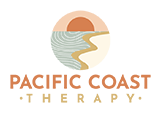Eating Disorder Therapy in Campbell, San Jose, and Santa Cruz
Eating disorders are serious conditions that impact both physical health and emotional well-being. They often stem from concerns about body image, weight, or control.
What Counts as an Eating Disorder?
Eating disorders go beyond food. At Pacific Coast Therapy, we work with clients facing a wide range of eating challenges, knowing that each person’s experience is different. Our focus through eating disorder therapy is to help you understand those struggles and begin healing in a supportive, non-judgmental space.
Common eating disorders we treat:
- Anorexia Nervosa: Characterized by extreme food restriction and fear of weight gain.
- Bulimia Nervosa: Involves binge eating followed by purging behaviors.
- Avoidant/Restrictive Food Intake Disorder (ARFID): Avoidance of food based on sensory issues, not body image.
- Other Specified Feeding or Eating Disorder (OSFED): An Eating disorder that doesn’t fit a single category but still requires serious attention and tailored treatment.
- Binge Eating Disorder: Involves frequent episodes of overeating, often in secret.
At Pacific Coast Therapy, we help clients identify the right treatment path and address both emotional and physical aspects of eating disorders. Our eating disorder therapist’s goal is real progress and lasting change, guided by compassion and clinical expertise.


What Can Trigger an Eating Disorder?
Recognizing the underlying triggers is a vital part of effective eating disorder therapy. While every person’s experience is unique, certain factors are commonly associated with the development of disordered eating habits.
At Pacific Coast Therapy, we help uncover these deeper influences in a safe, supportive space—so real recovery can begin. Common Triggers Include:
- Childhood Trauma: Early experiences like abuse, neglect, or family conflict can impact how someone relates to food and their body.
- Bullying or Body Shaming: Negative comments about appearance, especially during formative years, can lead to long-term struggles with self-image and eating behaviors.
- Major Life Transitions: Significant changes such as starting college, going through a breakup, moving, or losing a job can bring on stress that fuels disordered eating.
- Cultural and Social Pressure: Constant exposure to unrealistic body standards in the media and society can distort one’s self-perception and eating habits.
- Perfectionism and Control Issues: A strong need for control or high self-expectations can manifest in how someone manages their food and body image.
- Mental Health Struggles: Conditions like anxiety, depression, or obsessive thinking often exist alongside or contribute to eating disorders.
- Family History of Eating Disorders: Growing up in an environment where disordered eating is present can increase the risk of developing similar patterns.
Through therapy, we help clients understand these triggers, build awareness, and take steps toward a healthier and more balanced relationship with food, body, and self. Whether you’re seeking help for yourself or someone else, support is available.
Schedule your complimentary consultation today!
Therapy for Teens with Eating Disorders
Disordered eating can leave teens feeling overwhelmed and misunderstood. At Pacific Coast Therapy, we create a safe space where young clients feel heard, supported, and empowered to heal.
Our approach involves building trust, fostering open communication, and addressing harmful behaviors with sensitivity and care. We often use Family-Based Treatment to include parents in the recovery process, along with Cognitive Behavioral Therapy (CBT) to help teens replace negative thought patterns with healthier coping tools.
Every teen’s experience is unique, so sessions are tailored to their individual needs. We focus on helping teens rebuild self-esteem and develop a healthier relationship with food—at a pace that feels right for them.


Support for Adults with Disordered Eating
Disordered eating can develop quietly over time, often linked to deep, unspoken struggles. At Pacific Coast Therapy, we help adults understand the emotional roots behind habits like restriction, bingeing, or chronic dieting.
We utilize Cognitive Behavioral Therapy (CBT) to challenge negative thoughts and establish healthier patterns related to food and body image. For clients dealing with intense emotions, we may also incorporate Dialectical Behavior Therapy (DBT), which teaches skills like emotional regulation and distress tolerance.
Therapy is tailored to your pace and comfort level, offering steady support as you work toward lasting change and a healthier relationship with food.
What Clients Are Saying
How Do We Help?
Emotions like guilt, shame, or fear often drive eating disorders. We offer a consistent, judgment-free space where clients feel understood—even during setbacks. Our therapists provide tools to manage challenges, build emotional resilience, and move forward with greater confidence at every stage of recovery.

Get Started
1 Contact Us
2 Meet With A Caring Therapist
3 Begin The Road To Healing
We Offer Eating Disorder in Campbell, Santa Cruz, and San Jose
Pacific Coast Therapy offers personalized eating disorder counseling for teens and adults in Campbell, Santa Cruz, and San Jose. We help clients break harmful patterns and build healthier routines with professional, compassionate support.
Get started to learn how our therapy services can support your path to recovery.
